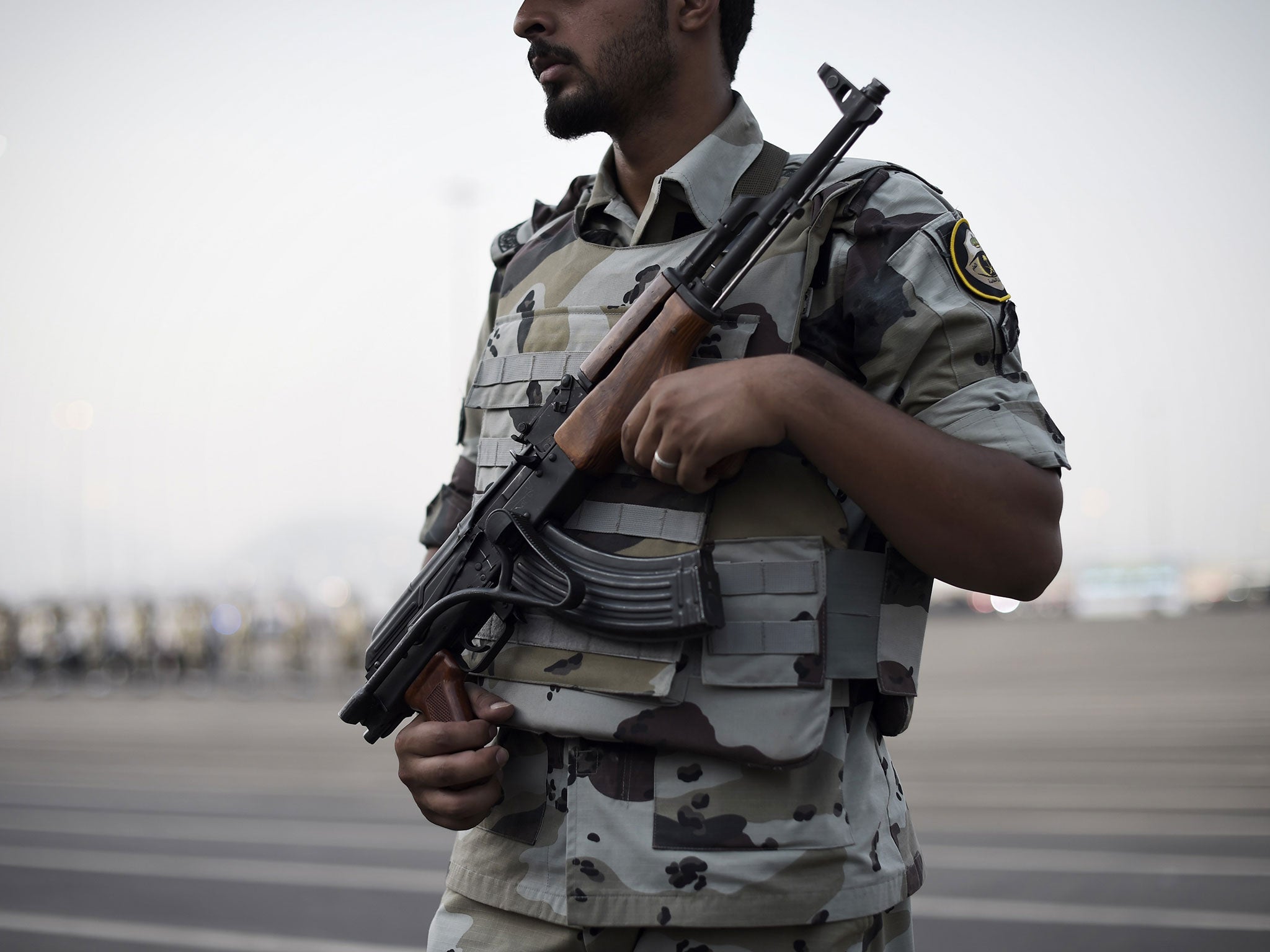US moves to diffuse diplomatic tensions between Saudi Arabia and Qatar
Gulf powers including Bahrain, Egypt and UAE distancing themselves from Doha over relationship with Shi'ite Iran and alleged support for Islamist militants

Your support helps us to tell the story
From reproductive rights to climate change to Big Tech, The Independent is on the ground when the story is developing. Whether it's investigating the financials of Elon Musk's pro-Trump PAC or producing our latest documentary, 'The A Word', which shines a light on the American women fighting for reproductive rights, we know how important it is to parse out the facts from the messaging.
At such a critical moment in US history, we need reporters on the ground. Your donation allows us to keep sending journalists to speak to both sides of the story.
The Independent is trusted by Americans across the entire political spectrum. And unlike many other quality news outlets, we choose not to lock Americans out of our reporting and analysis with paywalls. We believe quality journalism should be available to everyone, paid for by those who can afford it.
Your support makes all the difference.The US will quietly try to calm the waters between Saudi Arabia and Qatar, current and former US officials have said, arguing that the small Gulf state was too important to US military and diplomatic interests to be isolated.
US officials were blindsided by Saudi Arabia's decision to sever diplomatic ties with Qatar in a coordinated move with Egypt, Bahrain and the United Arab Emirates, the current and former officials said.
In announcing the decision to cut ties, Saudi Arabia accused Qatar of providing support to Shi'ite Iran, which is in a tussle for regional supremacy with Riyadh, and to Islamist militants.
Washington has many reasons to want to promote comity within the region. Qatar is host to the largest US air base in the Middle East at Al Udeid, a staging ground for US-led strikes on Isis that has seized parts of Syria and Iraq. US President Donald Trump has made defeating Isis a priority of his presidency.
Further, Qatar's willingness to welcome organisations such as Hamas, which Washington brands a terrorist group, and the Taliban, which has fought US forces in Afghanistan for more than 15 years, allows contacts with such groups when needed.
“There is a certain utility,” one US official said on condition of anonymity. “There's got to be a place for us to meet the Taliban. The Hamas (folks) have to have a place to go where they can be simultaneously isolated and talked to.”
The current and former US officials said they were unable to identify precisely what may have triggered the four countries' coordinated decision to cut ties, which was later followed by Yemen, Libya's eastern-based government and the Maldives.
They said the Saudis may have felt empowered by the warm embrace that Trump gave them when he visited Riyadh in May and adopted a harsh anti-Iran stance.
“My suspicion is (they felt) emboldened by what Trump said on his visit and... that they feel they have got some kind of backing,” said a former US official. “I don't know that they needed any more of a green light than they got in public.”
A senior administration official told Reuters the United States got no indication from the Saudis or Emiratis in Riyadh that the action was about to happen. The White House said on Monday it was committed to working to de-escalate tensions in the Gulf.
In Riyadh, Trump made an impassioned appeal to Arab and Islamic leaders to “drive out” terrorists, while singling out Iran as a key source of funding and support for militant groups.
US officials in multiple agencies stressed their desire to promote a reconciliation between the Saudi-led group and Qatar, a state of 2.5 million people with vast natural gas reserves.
“We don't want to see some kind of permanent rift and I suspect we won't,” said the senior Trump administration official on condition of anonymity, adding the United States would send a representative if the Gulf Cooperation Council nations met to discuss the rift with Qatar.
The GCC includes six wealthy Arab nations: Saudi Arabia, Kuwait, the UAE, Qatar, Bahrain and Oman.
“There's an acknowledgement that a lot of Qatari behaviour is quite worrisome not just to our Gulf neighbours but to the US,” said the senior administration official. “We want to bring them in the right direction.”
Marcelle Wahba, a former US ambassador to the UAE and the president of the Arab Gulf States Institute in Washington think tank, said the United States had leverage but would use it discreetly.
“The US will step up to the plate. How we will do it? I think it will be very quiet and very much in the background,” she said. “I doubt very much we will sit on the sidelines and let this crisis get more serious.”
Qatar's backing of Islamists dates to a decision by the current ruling emir's father to end a tradition of automatic deference to Saudi Arabia, the dominant Gulf Arab power, and forge the widest possible array of allies.
Qatar has for years presented itself as a mediator and power broker for the region's many disputes. But Egypt and the Gulf Arab states resent Qatar's support for Islamists, especially the Muslim Brotherhood, which they see as a political enemy.
“We are engaging with all of our partners... to find a way to reassemble some GCC unity to support regional security,” said another US official, saying it was critical to “maintain the fight against terrorism and extremist ideology.”
Reuters
Join our commenting forum
Join thought-provoking conversations, follow other Independent readers and see their replies
Comments